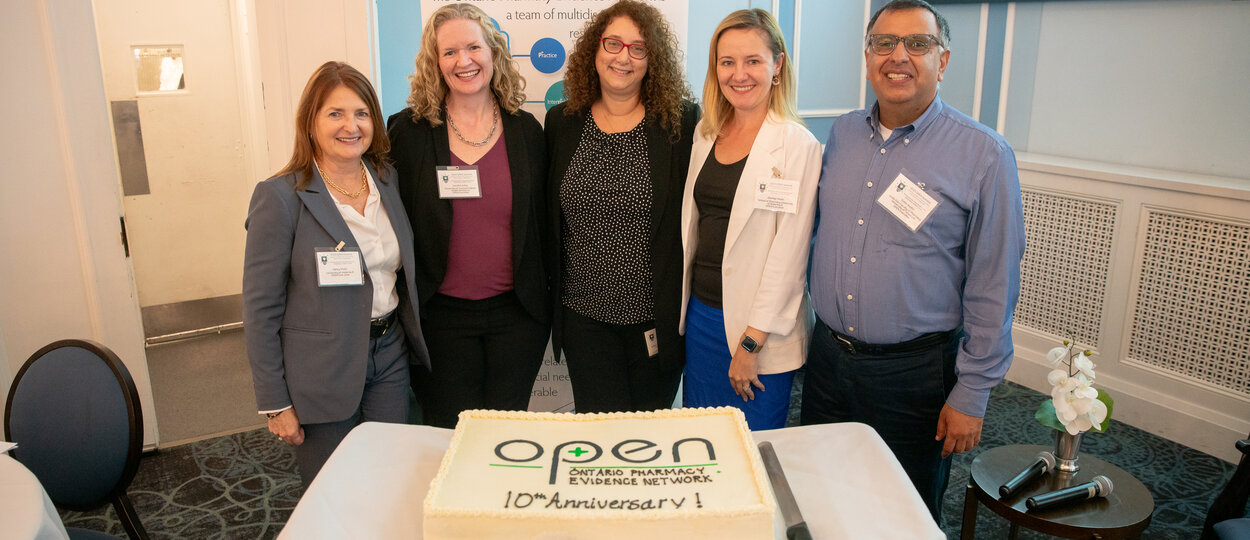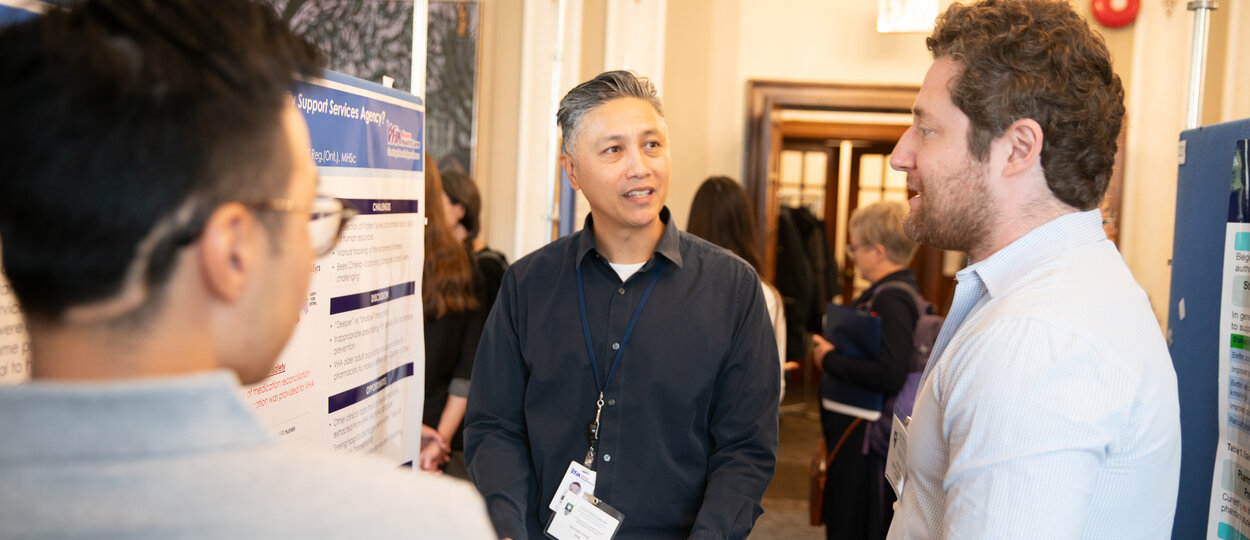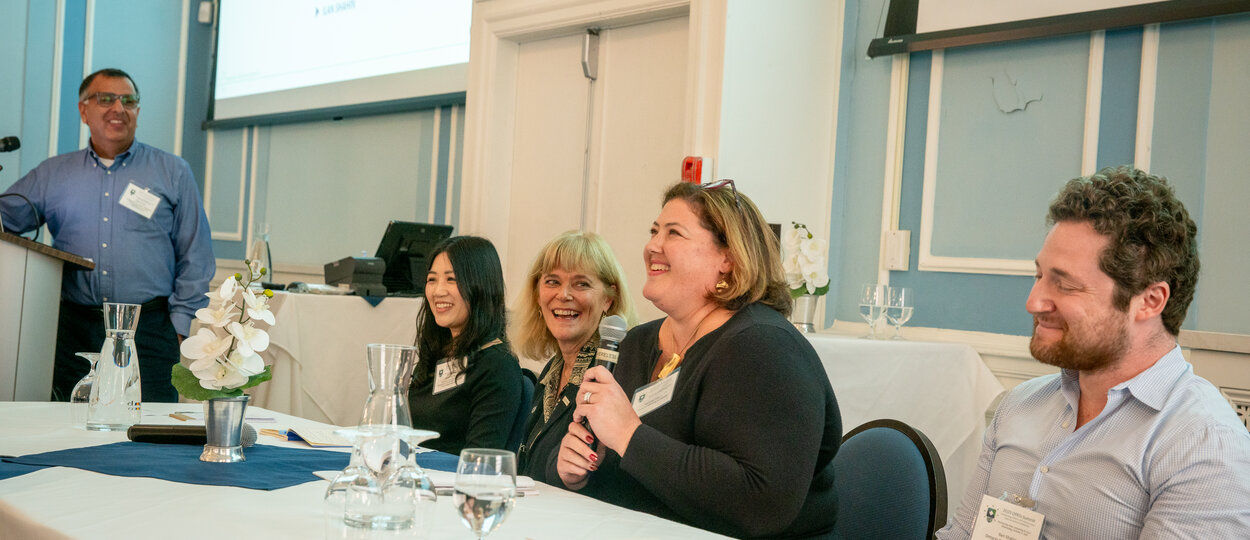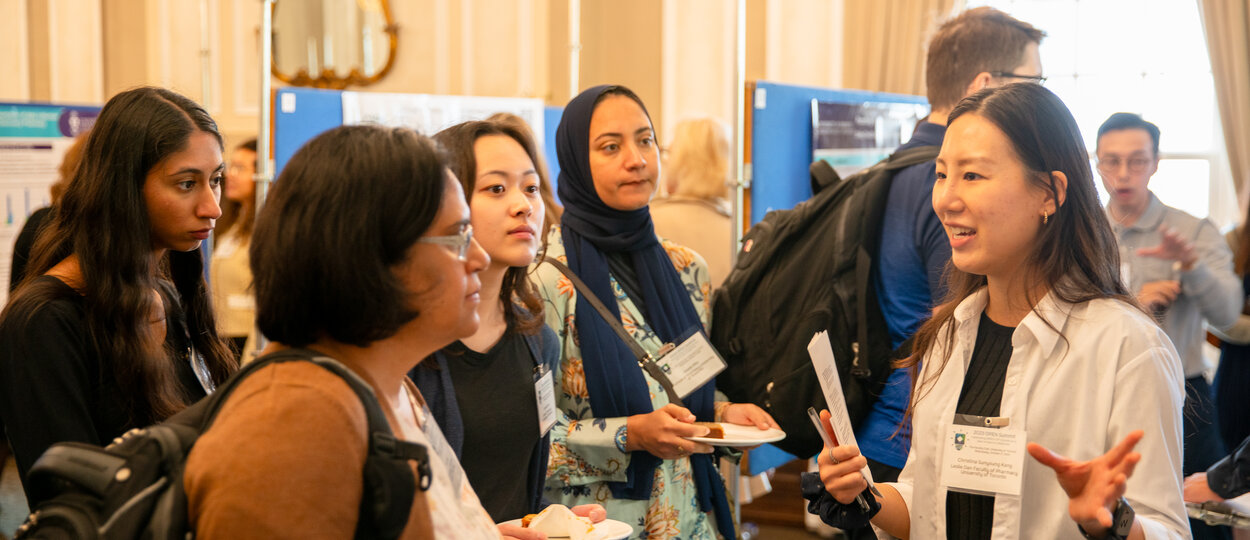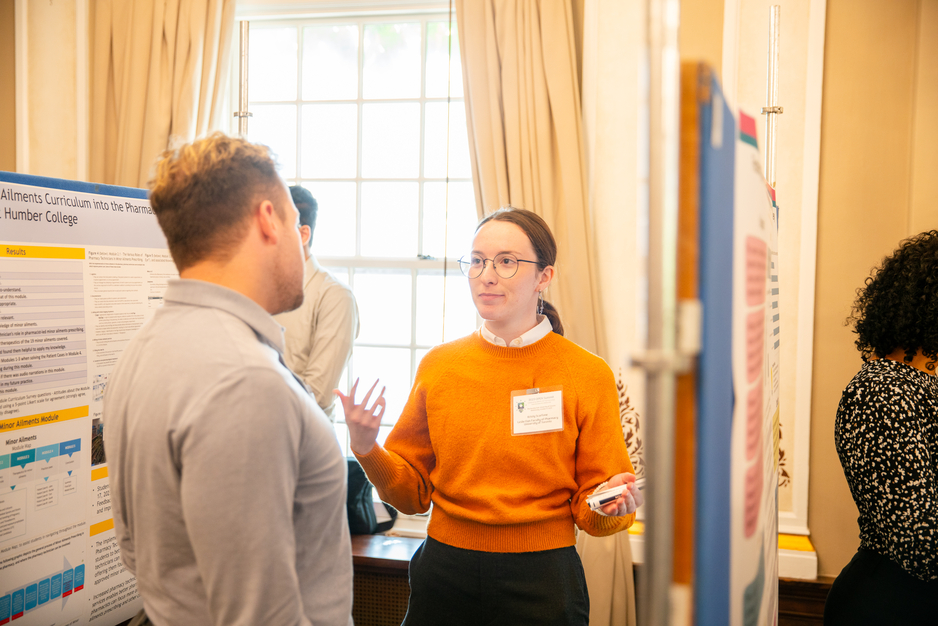Pharmacy researchers, practitioners, policymakers, and students from across Ontario gathered at the University of Toronto on October 11 to share new and emerging research and celebrate a key milestone. Launched in 2013, the Ontario Pharmacy Evidence Network (OPEN) became the first multi-institutional, pharmacy-focused research network in the province. Ten years later, OPEN continues to be a driver of widespread system change, focused on improving the quality of patient care through medication management and pharmacy practice research. The 2023 OPEN Summit included presentations, poster sessions, and collaborative panel discussions highlighting the many areas of research and practice innovation the network pursues.
“What we have achieved as a network is considerable because, not only have we helped forge collaboration among researchers, but we have also provided space for policy makers to learn more about our research.” - Lisa Dolovich
“What we have achieved as a network is considerable because, not only have we helped forge collaboration among researchers, but we have also provided space for policy makers to learn more about our research,” said Lisa Dolovich, professor and dean at U of T’s Leslie Dan Faculty of Pharmacy and a co-founding executive member of OPEN. “By building these relationships and creating opportunities for connection, we enabled better policy maker and researcher dialogue, which is fundamental to realizing change.”
One standout example of change is the strong and growing role pharmacy has in the immunization space. OPEN’s first funding in 2013 from the Government of Ontario supported research that demonstrated the value of pharmacists-as-immunizers. “To see now the amazing role both pharmacists and pharmacy technicians play in improving vaccine uptake and to know that OPEN’s research and collaboration with public health was part of that change, is incredibly rewarding.” said Nancy Waite, professor and associate director clinical education at UWaterloo’s School of Pharmacy and a recognized leader in this space.
Professor Waite is also a co-founding executive member of OPEN and has provided leadership for the initiative as part of the OPEN Executive group. This leadership group enables the network’s research work and knowledge translation efforts including in-person and virtual events, coordinating the OPEN Knowledge User Advisory Committee, and encouraging collaboration across the network. Reflective of the collaborative, multi-institutional approach of the network, OPEN Executive members also include Lisa McCarthy, associate professor, Leslie Dan Faculty of Pharmacy, Sherilyn Houle, associate professor at UWaterloo’s School of Pharmacy, and Zubin Austin, professor, Leslie Dan Faculty of Pharmacy.
Citizen engagement in healthcare research
In addition to facilitating connections between policy makers and researchers, in 2019 OPEN also established the OPEN Citizen’s Council to advance patient engagement in research and to ensure patient perspectives were included in the network’s strategic plan. With 16 members, The OCC serves in an advisory capacity, making recommendations on matters that impact the experiences of citizens in Ontario and offering valuable insight for research teams.
"Patient advisors can help us identify practical barriers and suggest improvements that might not be as apparent to healthcare professionals or researchers.”
- Zahava Rosenberg-Yunger
“We know that patient engagement in research can enhance health outcomes,” said Zahava Rosenberg-Yunger, OPEN’s patient and public engagement strategy lead and adjunct professor at Toronto Metropolitan University’s School of Health Services Management. “By involving patients, we can better match the right interventions with the right patients at the right time. This approach ensures that treatments or recommendations are not only scientifically sound, but also appropriate for real-world scenarios. Patient advisors can help us identify practical barriers and suggest improvements that might not be as apparent to healthcare professionals or researchers.”
Challenges and opportunities emerging from the COVID-19 pandemic
During the 2023 OPEN Summit plenary session, challenges and opportunities brought on by the COVID-19 pandemic were discussed as part of an interactive conversation on harnessing innovation in health system science. Since January 2023, community pharmacists in Ontario have seen significant expansion of practice scope, offering more services to patients, and helping to ease the burden on family care teams and emergency rooms.
As part of the session, Sara Guilcher, acting associate dean of research at the Leslie Dan Faculty of Pharmacy spoke about the value of health system science to inform and build learning health systems that are more responsive to the needs of society in the wake of the pandemic. “We are about to experience transformative change because the public is demanding it, and people just want better. We are seeing more and more conversations happening about the Canada Health Act and people are starting to ask real questions about how our system is serving us, which is a huge positive step.”
PharmD students engaging with pharmacy research
Ontario is Canada’s second largest province, covering more than 1 million square kilometers, and home to densely populated urban communities and more rural Northen communities. The drastic differences in how and where people live also translates into vastly different health needs and patient experiences. Fourth-year U of T PharmD student Kristy Scarfone brought this challenge to the table during a discussion session. “We talked about how data can drive policy through knowledge sharing and translation. But how can we ensure that the knowledge and experiences held by those in rural and northern areas of the province are represented in the evidence and data driving policy?” said Kristy who is from Sault Ste Marie and the Algoma region, the traditional territory of the Anishnaabe. “We as pharmacy professionals and health system researchers have a responsibility to seek the wealth of information that lies in the North to truly shape equitable policy and health system delivery across the province, which can further drive impact and sustainability.”
More News
Image

Pharmacy Summer Camp gives high school students insight into pharmacy profession
A new summer camp based at the faculty will give high school students a range of experiences in pharmacy and pharmaceutical sciences.
Read More
Image

Team GloveLift wins 2025 Business Plan Competition with innovative medical device
PharmD students win $5,000 prize for their innovative medical device concept aimed at improving patient care.
Read More
Image

Faces of PharmSci: Kinda Karra
MScPhm student Kinda Karra, working with Clinician Scientist Carlo DeAngelis, is studying why some breast cancer patients experience pain after chemotherapy and how a small blood sample could help detect signs of this reaction.
Read More
